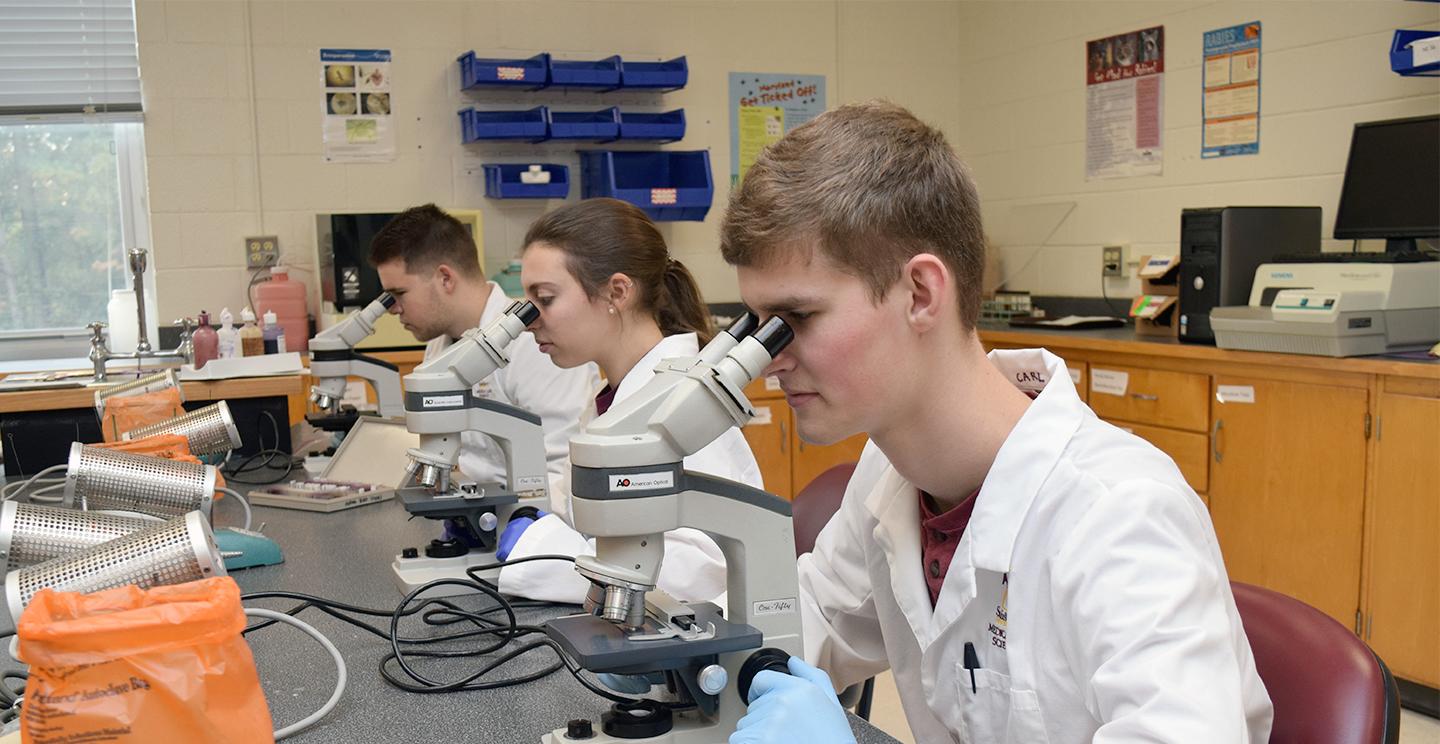
Clinical Hematology Minor
Salisbury University offers a number of minors within the medical laboratory science program, including a minor in clinical hematology. Hematology is the study of blood, both the cells and the fluid portion, called plasma. Hematologists work as part of a medical team responsible for diagnosing and managing patient illnesses. They are employed by hospitals, laboratories and universities. Most of their time is spent analyzing blood, but other topics include blood cell formation, anemias, leukemias and coagulation disorders.
Why Choose a Clinical Hematology Minor at Salisbury University?
Clinical hematology is a minor in the discipline of medical laboratory science (MLS). It allows you to complete the on-campus classes in clinical hematology, with this recognition posted on your transcript.
The minor in clinical hematology gives you the option to select just that one area of medical laboratory science (MLS) to study. The graduate of the MLS major is called a “generalist” and can practice in the areas of clinical biochemistry, hematology, transfusion services, immunology and clinical microbiology. The minor allows study in clinical hematology, without taking all of the program courses.
The minor includes general principles of human physiology and clinical laboratory operation as well as hematology topics such as blood cell formation, anemias, leukemias, coagulation disorders, etc.
Students majoring in MLS are given the first seats in any course. Students who wish to pursue a minor may apply for any remaining slots.
For a more in-depth study, learn more about SU’s medical laboratory science major.